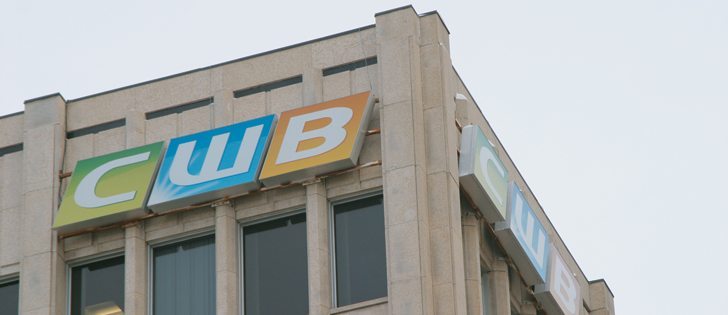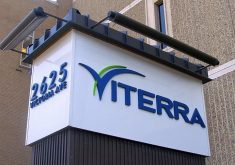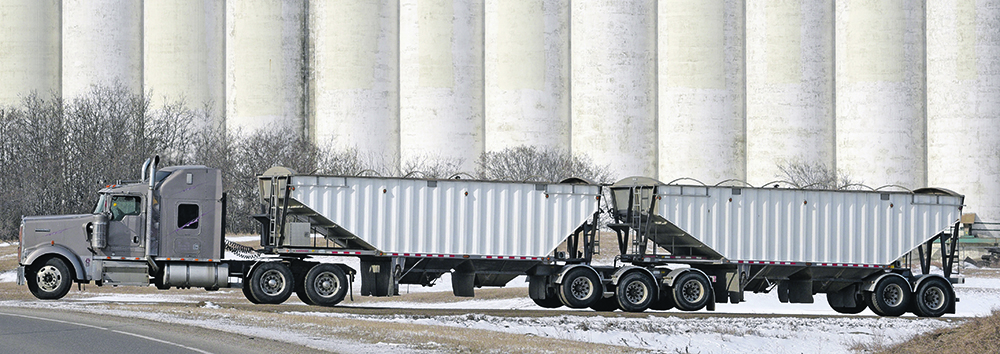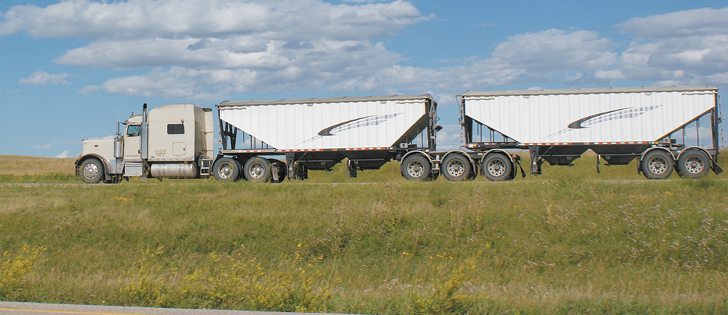Farmers to regain stake in sector | Newly built Genesis Grain & Fertilizer could use CWB assets
A Saskatoon-based organization is hoping prairie farmers will open their wallets and throw their support behind a plan to acquire a controlling share in CWB.
Representatives from Farmers of North America used town hall meetings last week to share details of how they plan to acquire a controlling share in CWB.
FNA chief operating officer Barrie Mann told about 20 producers attend-ing an Oct. 3 meeting in Davidson, Sask., that his organization has established a new company, Genesis Grain & Fertilizer, that will buy and sell grain and give farmers a much-needed ownership stake in Western Canada’s highly profitable grain handling sector.
Read Also

Farming Smarter receives financial boost from Alberta government for potato research
Farming Smarter near Lethbridge got a boost to its research equipment, thanks to the Alberta government’s increase in funding for research associations.
Genesis will also distribute fertilizer produced at a manufacturing plant that FNA is planning to build at Belle Plaine, Sask.
Construction of the fertilizer plant is also being financed by farmer investments, but it would operate as a stand-alone company.
Genesis will be involved in fertilizer distribution, grain origination and at some sites, farm input sales.
For the purpose of grain origination, CWB’s existing assets would be an ideal fit for Genesis.
In essence, farmers who invest in Genesis would be buying into a multi-facetted company with a grain handling component that is tied to the acquisition of CWB assets.
Farmer ownership is a key element of the Genesis proposal.
To get the new venture off the ground, FNA plans to sell shares to qualified farmers for $1,000 per unit.
Investors must be farmers and would be required to meet pre-established investment criteria.
Shares will be sold in blocks of 10, meaning a minimum investment of $10,000.
Mann said FNA is hoping to raise as much as $380 million through the offering.
Ideally, $20 million will be in place by mid-October, although Mann said that target date could be moved back if necessary.
FNA has organized 90 meetings in farming communities across the West.
The meetings, which continue this week and next, are aimed at sharing information about Genesis and gauging investor interest.
Producers who attend the meetings are asked to submit non-binding expressions of interest, giving promoters an idea of how much money they might be willing to invest.
A full list of meeting dates and locations is available on FNA’s website at www.FNA.ca.
In Davidson, much of FNA’s pitch was focused on the value of CWB assets, the merits of farmer ownership and the steps that might be involved in acquiring a controlling share in the former wheat board.
However, Mann acknowledged that there are many unanswered questions surrounding CWB’s finances.
FNA does not know how much grain CWB handled in 2013-14, nor does it know how CWB is financing current efforts to develop a prairie-wide grain handling network.
Mann said FNA’s team of experts has valued CWB’s assets at $200 to $300 million, but in an interview after the meeting, he said CWB has not disclosed its finances to FNA.
“Our numbers are strictly based on public documents (that are) out there and knowing what transactions have occurred and from public files,” he said.
The value of CWB’s assets is a topic of increasing interest.
The company’s assets include Mission Terminal at Thunder Bay, Ont., Prairie West Terminal at Plenty, Sask., Great Sandhills Terminal at Leader, Sask., a corporate office building in downtown Winnipeg, a fleet of hopper cars, two laker-sized ships that will soon be hauling cargo on the Great Lakes and other smaller grain handling and railway assets across the country.
The company has also announced four new elevator construction projects in Western Canada, the latest near Glenlea, Man.
The construction of four new elevators is expected to cost $50 to $100 million, although CWB officials have declined to share details on costs.
There are also lingering unanswered questions about the ownership of the CWB assets that would be involved in any deal to sell or privatize CWB.
Ownership of the former assets, including the money in a contingency fund worth more than $125 million, is at the centre of an ongoing legal battle between the federal government and a group that represents aggrieved farmers.
Claimants in that case argue that assets in CWB’s contingency fund were generated through the sale of farmers’ grain and therefore should be returned to producers.
It is widely assumed that money contained in the former contingency fund was leveraged and now serves as the primary source of investment capital behind CWB’s current efforts to build a western Canadian grain-handling network.
Legal battles aside, CWB has been offering farmers $5 worth of CWB equity for each tonne of grain they commit to CWB’s various marketing programs.
Mann gave no indication of how much CWB equity has already been handed back to farmers through the farmer equity plan.
Since Aug. 1, 2012, CWB has not publicly shared details of its annual sales programs.
For a video about a farmer meeting visit here.
To read an editorial about it click here.


















